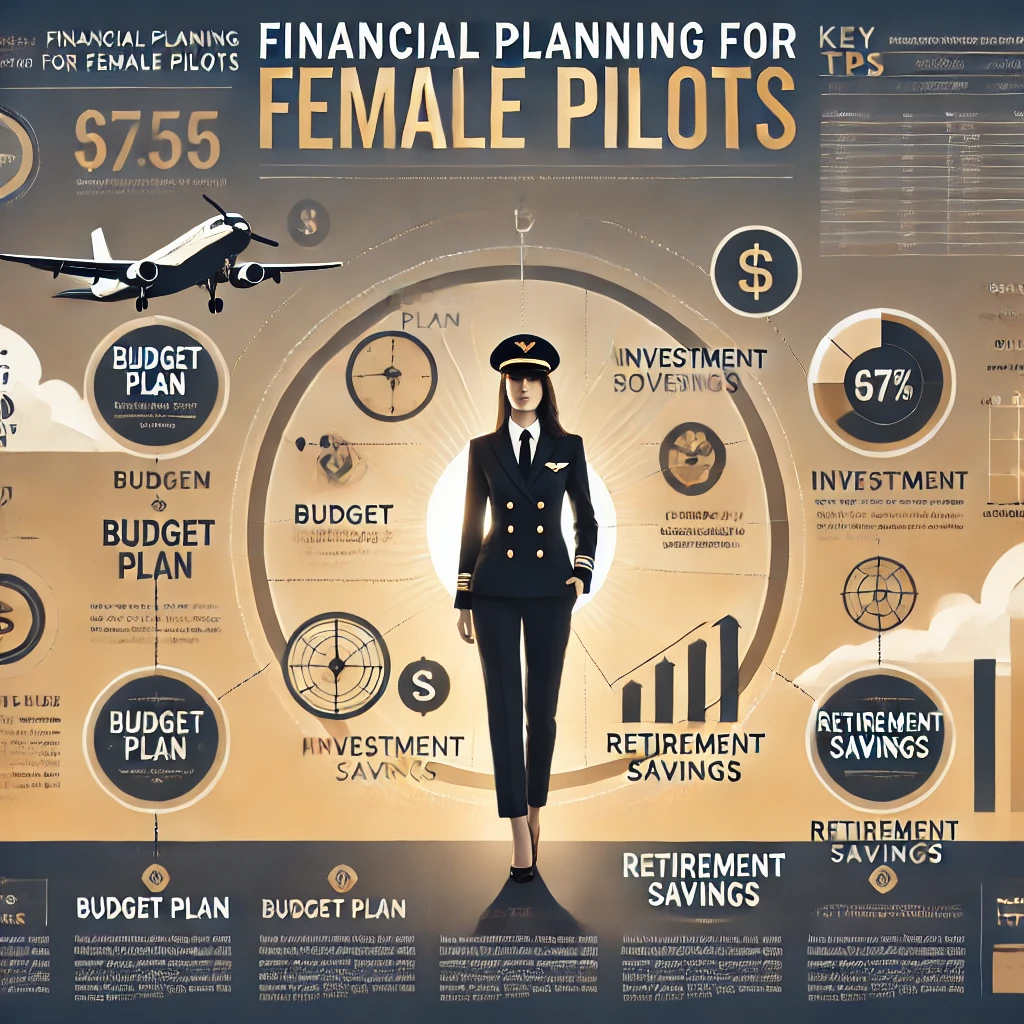The aviation industry offers lucrative career opportunities, but financial planning remains crucial—especially for female pilots. With unique challenges such as fluctuating salaries, career breaks for maternity leave, and gender pay disparities, planning ahead ensures a secure and comfortable retirement. This guide provides financial strategies tailored for female pilots, helping them navigate their careers and prepare for a strong financial future.
Understanding the Unique Financial Challenges
Income Variability and Career Longevity
Unlike traditional 9-to-5 jobs, a pilot’s salary depends on flight hours, airline policies, and industry fluctuations. While senior pilots earn high salaries, downturns in the aviation industry can impact financial stability.
Gender Pay Gap in Aviation
Although women represent a growing percentage of pilots, they still face income disparities. This gap affects retirement savings and long-term financial security, making strategic financial planning even more essential.
Creating a Solid Financial Foundation
Budgeting for Pilots
Pilots often earn well but need strong budgeting skills due to their fluctuating incomes. A zero-based budgeting strategy ensures every dollar has a purpose, covering essentials like living expenses, savings, and investments.
Emergency Funds for Unexpected Situations
An emergency fund with six to twelve months’ worth of living expenses can provide security during job transitions, health issues, or airline layoffs.
Retirement Planning Essentials for Female Pilots
Understanding Retirement Accounts
Pilots should explore 401(k) plans, IRAs, and Roth IRAs. Employer-sponsored retirement plans often come with airline-matching contributions—maximizing these benefits is crucial.
Employer-Sponsored vs. Individual Retirement Plans
While airline pension plans can be beneficial, supplementing them with personal retirement accounts provides additional financial security.
Investing Strategies for Female Pilots
Risk Tolerance and Investment Vehicles
Investments should align with career stage and risk appetite. Younger pilots can take more risks in stocks, while nearing-retirement pilots should prioritize stability through bonds and index funds.
Diversifying Investment Portfolios
Pilots should avoid over-relying on one asset class. A balanced portfolio of stocks, bonds, and real estate mitigates risks.
Pension Plans and Benefits in the Aviation Industry
Maximizing Employer Contributions
Many airlines offer generous pension plans. Pilots should contribute enough to receive maximum employer-matching benefits.
Understanding Airline-Specific Retirement Benefits
Different airlines offer varying pension structures. Knowing the details of pension withdrawal options can prevent tax penalties.
Side Income and Passive Income for Retirement
Real Estate Investments
Owning rental properties or investing in REITs can create a steady passive income stream.
Stock Market and Dividends
Dividend-paying stocks provide passive income and portfolio growth over time.
Tax Planning for Female Pilots
Understanding Tax Benefits and Deductions
Pilots can deduct job-related expenses such as uniforms, travel costs, and flight training.
Tax-Advantaged Investment Strategies
Using tax-efficient accounts like Roth IRAs and HSAs reduces tax liabilities in retirement.
FAQs About Financial Planning for Female Pilots
How can female pilots ensure financial stability during career breaks?
Building a strong emergency fund and investing in passive income sources help maintain financial stability during maternity leave or career breaks.
What are the best retirement investment options for pilots?
A mix of 401(k)s, Roth IRAs, and diversified stock portfolios provide long-term growth.
How can female pilots overcome the gender pay gap?
Negotiating salaries, seeking promotions, and maximizing employer benefits can bridge income disparities.
What insurance policies should pilots have?
Disability insurance, life insurance, and long-term care coverage are essential.
Is real estate a good investment for pilots?
Yes, rental properties and REITs offer passive income that complements retirement savings.
How should pilots plan for inflation?
Investing in assets like stocks and real estate helps combat inflation’s impact on savings.
You Can Also Read : How Pilots and Female Pilots Can Secure a Strong Retirement Plan
Securing a Stable Future
Financial planning is essential for female pilots seeking a secure and comfortable retirement. By managing income wisely, investing strategically, and preparing for industry changes, female pilots can achieve long-term financial independence and enjoy the fruits of their careers well into retirement.
